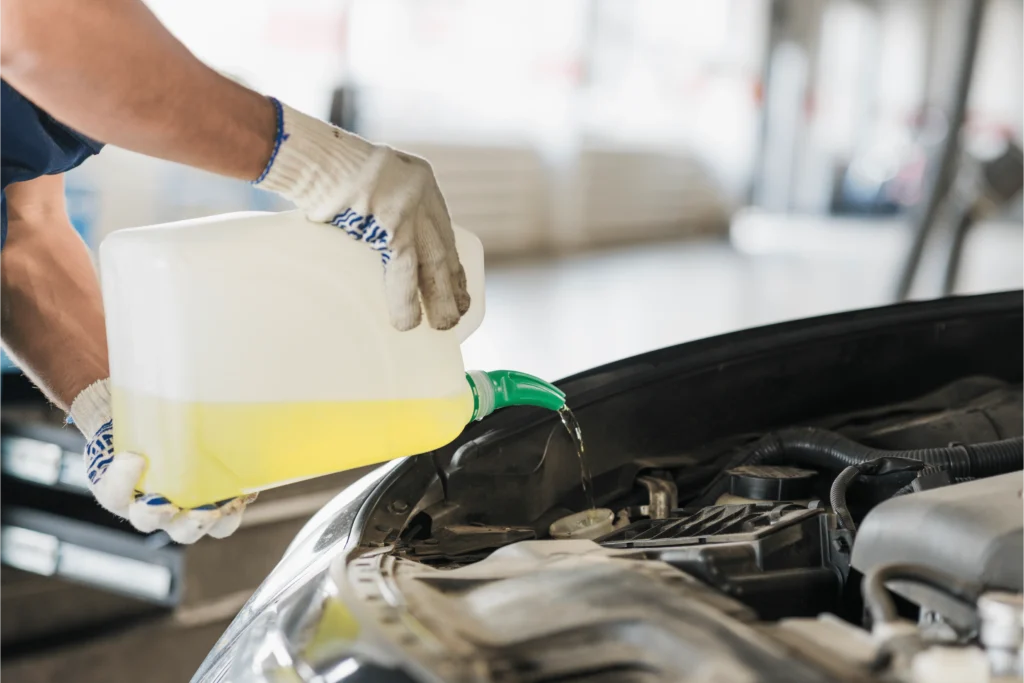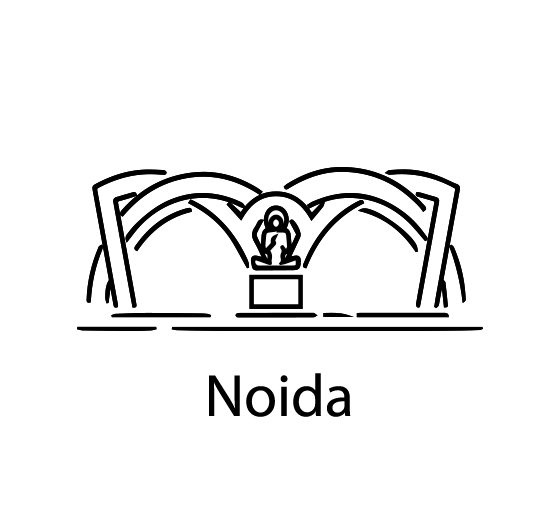PRIVACY POLICY
[Tserv]
Last updated [June 23, 2024]
TOYOTA KIRLOSKAR MOTOR PRIVATE LIMITED (“TKM” or “we” or “us” or “our”) respects the privacy of our user, who has downloaded the T-Serv application or visits the T-Serv Website or is registered with T-Serv by any other means, including the data captured in the garage management system (“user” or “you”). This Privacy Policy explains how we collect, use, disclose, and safeguard your information when you visit our Mobile Application, Website, and our T-Serv Service Center/Workshop for servicing your vehicle (Please read this Privacy Policy carefully.
IF YOU DO NOT AGREE WITH THE TERMS OF THIS PRIVACY POLICY, PLEASE DO NOT ACCESS THE APPLICATION, THE WEBSITE OR GIVE YOUR CONSENT AT THE WORKSHOP.
We reserve the right to make changes to this Privacy Policy at any time and for any reason. We will alert you about any changes by updating the “Last updated” date of this Privacy Policy. You are encouraged to periodically review this Privacy Policy to stay informed of updates. You will be deemed to have been made aware of, will be subject to, and will be deemed to have accepted the changes in any revised Privacy Policy by your continued use of the Application after the date such revised Privacy Policy is posted.
This Privacy Policy does not apply to the third-party online/mobile store from which you install the Application, which may also collect and use data about you. We are not responsible for any of the data collected by any such third party.
-
COLLECTION OF YOUR INFORMATION
We may collect information about you in a variety of ways. The information we may collect via the Application, Website & Garage Management System depends on the content & materials you use, type of services you avail and includes:
| Category of Information collected |
Examples of Data |
Purposes of processing
– why is it collected by TKM? |
| Personal Data |
Name, age, address, current city, mobile number, email address, birthdate, profile picture, Device information such as your, mobile device ID number, model, and manufacturer, version of your operating system, phone number, country, location, and any other data you choose to provide. |
- To fulfill your requests;
- manage and improve our business relationship with you;
- assess the quality of the services we provide, and the services our suppliers provide to us or on our behalf;
- deal with your enquiries for service, new Toyota vehicles & Used Car through Toyota U-Trust
- Promote New Toyota vehicles & Used cars through TKM or its Dealers
- Service reminder calls to ensure your vehicle is serviced at the right interval
- help understand, develop and improve our products, processes, services and marketing strategies.
- comply with our legal and regulatory responsibilities, to respond to legal process or requests for information issued by government authorities or other third parties, to prevent and detect crime and fraud, or protect your, our or others’ rights.
|
| Vehicle Information |
Vehicle Identification Number (VIN), hardware model and part numbers, status of vehicle systems (e.g., fluid levels, tire pressure, and locks), odometer, and other information about how your vehicle is performing |
To better understand and troubleshoot vehicle performance issues; for diagnostics purposes; for product research and improvement purposes; and for offering products and services tailored to you.
Vehicle Information obtained directly from the vehicle at service visits. |
We may, where permitted by law, combine and, using automated decision making processes, analyze your Vehicle Information with other information we hold about you, to assist with the purposes outlined above. This could include, for example, analyzing vehicle diagnostic information, evaluating the effectiveness of our marketing and customer service, conducting market analysis ,identifying products or services which may be of interest to you, Information of Toyota New Vehicles & Used Cars and contacting you to tell you about those products and services.
In some limited circumstances, the automated decisions we take may have a legal or similar effect on you. We will only make these kinds of automated decisions about you where:
- the decisions are necessary for performing or entering into a contract with you;
- the decisions are authorised by law; or
-
DATA AND VEHICLE SECURITY
No one can guarantee data security, but we, our service providers and partners take data and cyber security very seriously.
We use a variety of technical, administrative, and physical security measures to help protect and maintain the security, integrity and availability of Vehicle & Personal Information.
- DISCLOSURE TO THIRD PARTIES
Depending on the purpose and services You use from Tserv, We may, from time to time, share Your Personal Information and Your Vehicle related Data to our parent company, affiliates, subsidiaries, dealers, services providers and other business partners involved in rendering various services selected by You with your prior consent. This information will be shared in an anonymized manner such that they cannot attribute it to the ultimate customer and will be for a limited period of time.
TKM does not access, use, transfer or disclose Your Personal Information and Vehicle related Data to third parties except:
- to provide products or services You have requested;
- when We have Your consent or permission; or
- under the following circumstances:
- We provide the information to trusted entities and service providers who work on behalf of or with TKM under strict confidentiality agreements. These entities may use Your Personal Information to help TKM communicate with You about offers from TKM and for other legitimate business purposes. However, these companies do not have any independent right to further share or disseminate this information. As We continue to develop Our business, We might sell or buy subsidiaries or business units. In such transactions, Users’ Information generally is one of the transferred business assets but shall remain subject to the terms and conditions contained in this Policy;
- We respond to subpoenas, law enforcement and regulatory inquiries, government agencies, court orders, or legal process, or to establish or exercise Our legal rights or defend against legal claims;
- We believe it is necessary to share the information in order to investigate, prevent, or act against any illegal activities, suspected fraud, technical issues, situations involving potential threats to the physical safety of any person, activity we may consider to pose a risk of being an illegal, unethical, or legally actionable or as otherwise required by law.
- We believe it is necessary to share the information in order to protect or enforce TKM’s rights, policies, usage terms, intellectual or physical property or for safety of TKM or associated parties.
- We may share Your information in order to satisfy any applicable law, rule, regulation, governmental requests or legal process.
- We believe it is necessary to respond to claims that an advertisement, posting or other content that is alleged to violate the rights of a third party.
- We may share information about You if TKM is acquired by or merged with another company.
- We have Your explicit consent to disclose Your Personal Information (i) to other registered Users of the Website for the purpose of facilitating the communications and transactions, if any, amongst the Users (ii) to third parties for their marketing and advertising purposes; (iii) to send You promotions, notifications, or other services.
In case of any illegal, ethical or legally actionable activity, We may use IP address or other device identifiers, to identify users, and may do so in cooperation with third parties such as internet service providers, wireless service providers and/or law enforcement agencies, including disclosing such information to third parties, all in Our discretion. Such disclosures may be carried out without notice to You. However, we shall not sell, share or rent the Your Personal Information to any third party or use any user’s email ID for sending any unsolicited mails.
- INTERNATIONAL DATA TRANSFER
TKM may transfer certain Personal Information across geographical borders to TKM’s parent, affiliates, subsidiaries, joint ventures or service providers in other countries working on Our behalf in accordance with applicable law(s). TKM may transfer Your Personal Information to any other body corporate or a person in any country that ensures the same level of data protection, as per the applicable data protection laws and regulations.
When You provide Us with Your information or use Our Website and/or applications, We may collect, transfer, store, and process Your information, anonymize and use it. These transfers are governed by equivalent data transfer agreements to protect the security and confidentiality of Your Personal Information.
- DATA PROTECTION
We have implemented reasonable physical, electronic, technical, procedural and administrative security measures and safeguards to protect Your Personal Information from loss, misuse, unauthorized access, alteration or destruction, in compliance with the provisions of the Information Technology Act, 2000 and Information Technology (Reasonable Security Practices and Procedures and Sensitive Personal Data or Information) Rules, 2011 to ensure the protection and preservation of Your privacy.
Our service providers and agents are bound to maintain the confidentiality of Your Personal Information and may not use the information for any unauthorized purpose. TKM will ensure through formally executed contracts that the service providers are committed to the same level of data protection as per the applicable data protection laws and regulations.
We try to limit access to Your Personal Information to only such entities who we believe reasonably need to come into contact with that information to provide products or services to You. However, We do not ensure or warrant the security of any information You transmit over internet to Us and You understand that any information that You share is done at Your own risk.
Unless otherwise stated herein and as permitted or required by applicable law, We retain Your Personal Information for as long as necessary to provide the services You have requested, or for other essential purposes such as complying with Our legal obligations, resolving disputes, enforcing our policies, agreements and for any other reason which may be deemed necessary. For these purposes, Your information may be retained for extended periods post your account cancellation. However, the Information of the User will get anonymized upon cancellation of user account except for the abovementioned purposes.
- CHANGE IN PERSONAL DATA AND PREFERENCE
You shall be responsible to provide and maintain accurate and complete Personal Information. You can access or update Your Personal information in the following ways.
Profile
If you have created a profile or account on Our Application, You can update Your contact information after you log into your account.
Newsletters
If You request electronic communications, such as an e-newsletter, You will be able to unsubscribe at any time by following the instructions included in the communication.
Mobile Devices
If You previously chose to receive push notifications on Your mobile device from Us, but no longer wish to receive them, You can manage Your preferences either through Your device or the application settings. If You no longer wish to have any information collected by the mobile application, You may uninstall the application by using the uninstall process available on Your mobile device.
Cookies
As described in our ‘Cookie Policy’ You can adjust Your browser settings to accept or refuse cookies.
Email
Contact Us at the e-mail or postal address listed in the “Contact Us” section below. Please include Your current contact information and Your requested changes. We will update Your information or provide You access to the Personal Information requested, subject to reasonable limitations provided by law, unless it infringes on the privacy of other individuals.
If you wish to report a security breach or have a problem that you are unable to resolve or require any other assistance in respect of the Website and this Policy, you may contact legal@toyota-kirloskar.co.in
Contact Us
If you have any queries about this Policy and Our handling practices, You can contact us at:
Address: Toyota Kirloskar Motor Pvt Ltd.,
Plot No: 1, Bidadi Industrial Area,
Bidadi, Ramanagara District, Karnataka – 562109, India
E-mail ID: legal@toyota-kirloskar.co.in or VOC@toyota-kirloskar.co.in
- COMPLIANCE WITH LAWS AND DISPUTE RESOLUTION
You shall be responsible for compliance with all applicable laws. This Policy is governed by the laws of India and the courts at Ramanagar District shall have exclusive jurisdiction over any matters concerning or arising out of this Policy and Our practices.
To the maximum extent permissible under applicable laws, We shall not be responsible for any damage, harm, loss, liability or inconvenience suffered by You as a result of Your use of Our Website, applications or visit to a T-Serv outlet.
You agree and undertake to indemnify, defend and hold harmless, the Company, its affiliates and their respective officers, directors, lawful successors, assigns and any third party from and against any loss, cost, disputes, actions, claims, suit, damage, liability, or expense howsoever caused, or suffered by the Company including legal fees and disbursements in connection therewith and interest chargeable thereon asserted against or incurred by such indemnified persons, that arise out of, arising out of or in any way connected with this Policy, Personal Information and/or Your use or access of Our Website or applications.
Subject to any responsibilities implied by law and which cannot be excluded, You expressly understand that under no circumstances, including, but not limited to, negligence, shall We be liable to You or any other person or entity for any direct, indirect, incidental, special, or consequential damages, including, but not limited to damages for loss of profits, goodwill, use, data or other intangible losses, resulting from circumstances, including but not limited to: (i) unauthorized access to or alteration of Your Personal Information; (ii) any unauthorized access to or use of Our secure servers and/or any and all Information stored therein.
TKM reserves the right to update this Policy as and when need arises, without prior notification to its Users and the same will be made available on Toyota Connect and the Website. However, Our commitment to protect Your privacy will continue to remain. We urge You to visit Our Website periodically to make sure You are aware of any changes to Our policies and practices. Your continued use of the Website following the posting of changes to this Policy shall be deemed Your acceptance of those changes. We shall not be liable for any damages You may suffer as a result of any changes to this Policy.





























